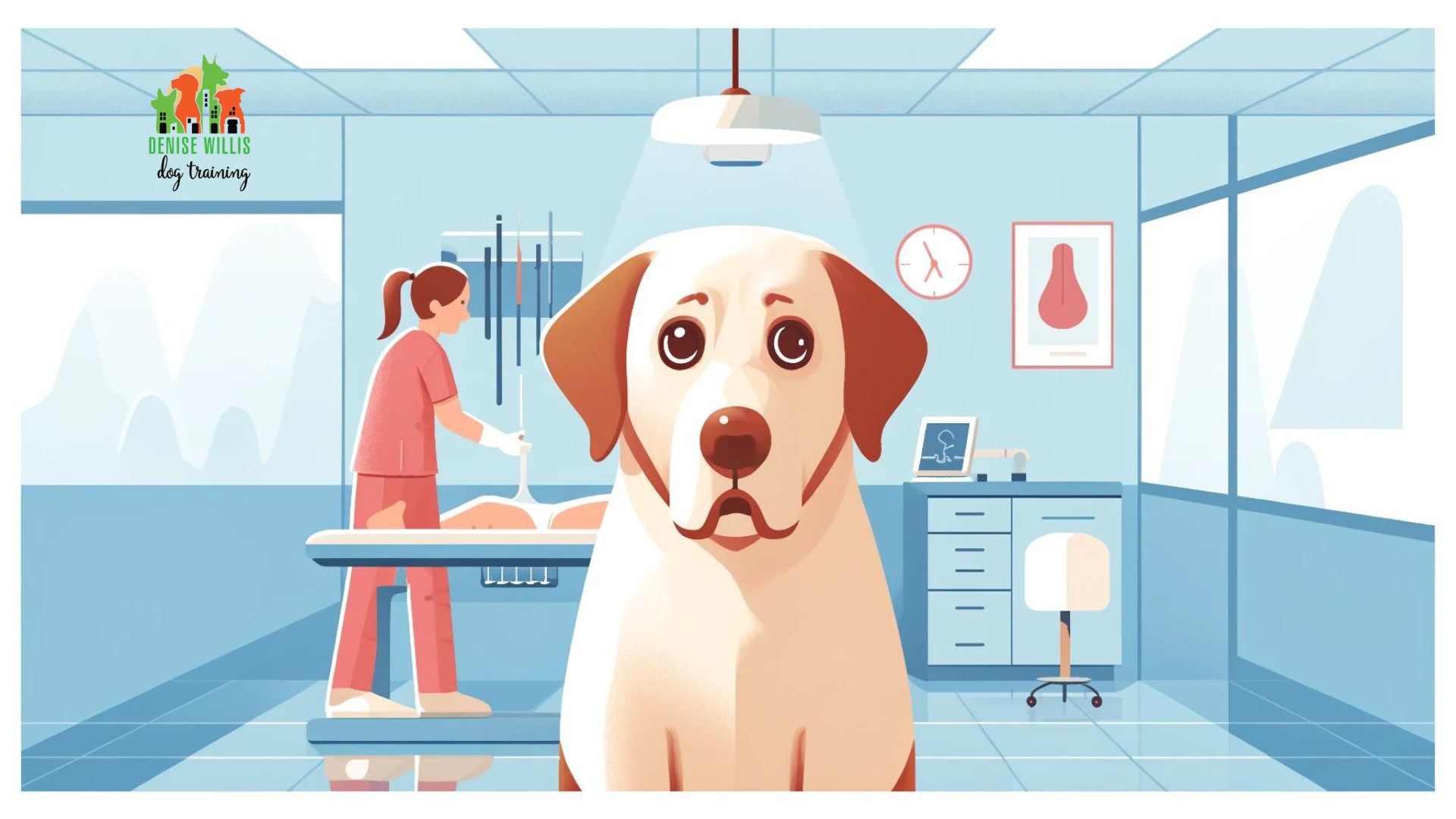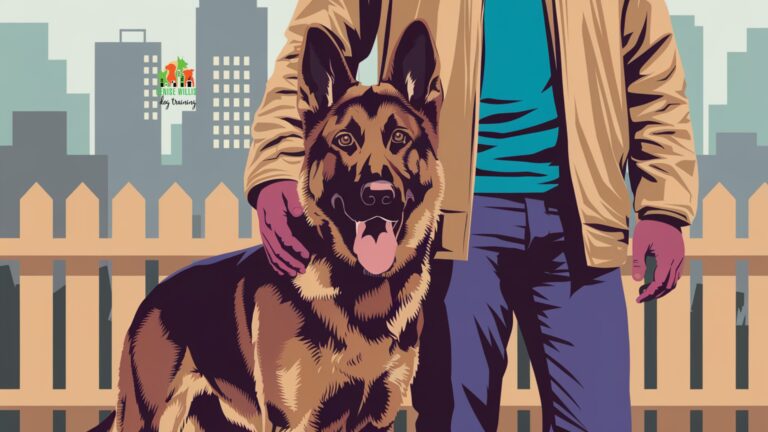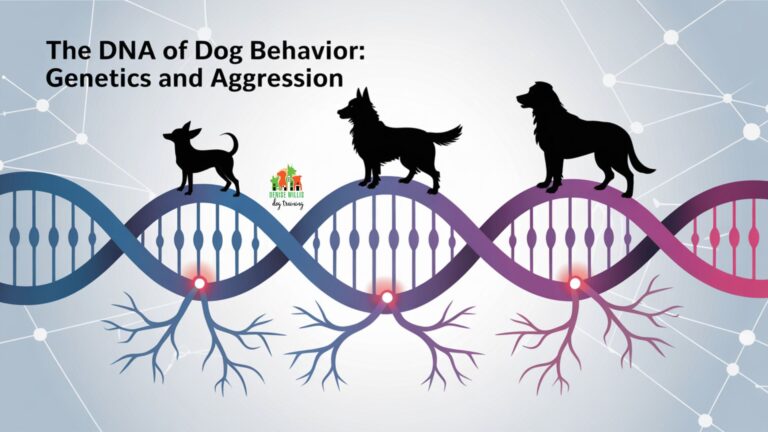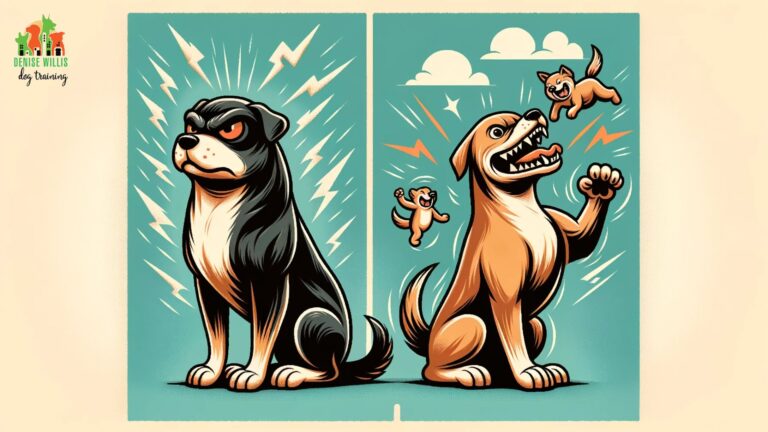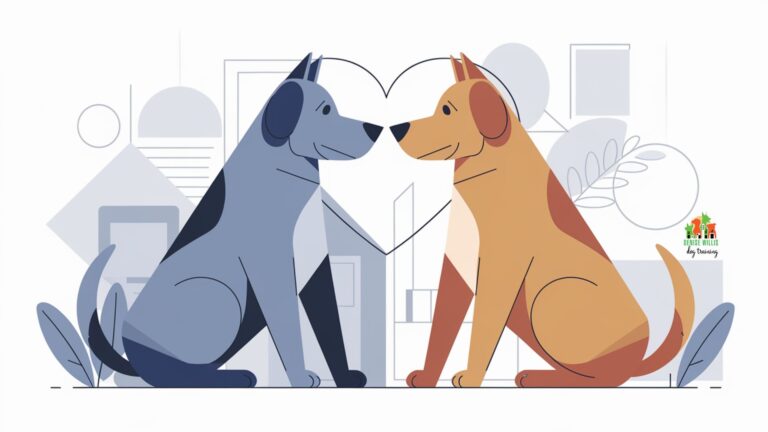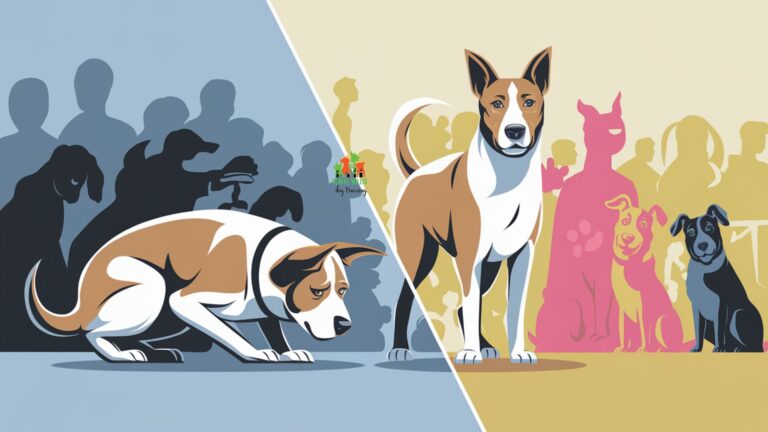The Shocking Truth About Dog Aggression After Neutering
📍 Service Area Notice: DW Dog Training provides in-person training services exclusively in the Greater Baltimore area. While our blog content is designed to help dog owners internationally, our hands-on training services are locally focused. For readers outside our service area, we hope you find value in our articles and welcome you to reach out with questions!
Dog aggression after neutering is a heartbreaking reality for countless pet owners who thought they were doing right by their furry friends. But why does this happen?
As a professional dog trainer with over two decades of experience, I’ve seen the shock and dismay on the faces of owners whose once-gentle companions suddenly turn aggressive post-surgery.
Brace yourself, because the truth behind this distressing phenomenon isn’t always pretty. But armed with knowledge and a solid plan, you and your dog can navigate this challenging transition and come out stronger on the other side.
The Neutering Procedure: A Perfect Storm of Stress
Let’s be real – going under the knife is no walk in the park, even for our canine companions. The entire process of neutering, from the trip to the vet to the anesthesia and surgery itself, can be an overwhelming and frightening experience for your dog.
Consider all the factors at play:
- The strange sights, smells, and sounds of the vet’s office
- Being separated from you, their trusted human
- The physical discomfort of the surgery and recovery
- The lingering effects of anesthesia on their mind and body
It’s no wonder that many dogs come out of the procedure feeling stressed, anxious, and out of sorts. And, for some, that stress can manifest in the form of aggression, even towards triggers that never bothered them before.
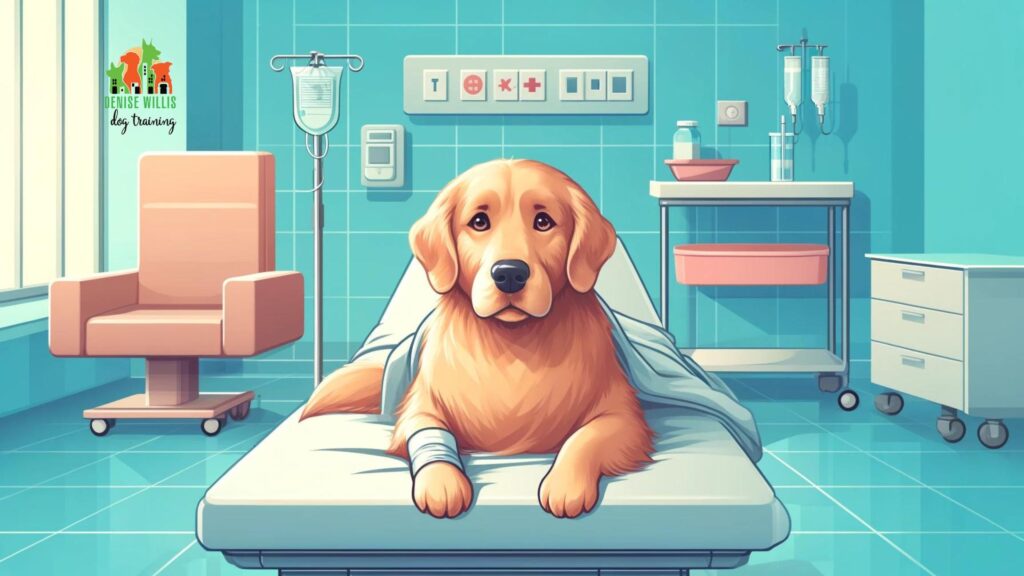
The Pain Problem: When Discomfort Leads to Aggression
Here’s the thing about pain – it can make even the sweetest dog feel vulnerable and defensive. Even with proper pain management, some dogs may experience discomfort after neutering, and that pain can be a powerful trigger for aggressive behavior.
If your typically gentle dog suddenly starts growling, snapping, or biting after surgery, don’t ignore it. Reach out to your vet right away to rule out any underlying medical issues or complications. Pain is no joke and addressing it promptly is crucial for your dog’s physical and emotional well-being.
Hormones Gone Haywire: The Testosterone Connection
Let’s talk about testosterone, the big kahuna of male hormones. This powerful chemical plays a huge role in your dog’s development, from their physical growth to their behavior and temperament. And when it comes to aggression, testosterone is often a key player.
When you neuter your dog, you’re essentially hitting the off switch on their testosterone production. And while that can be a good thing for curbing unwanted behaviors like humping and roaming, it can also have unintended consequences.
Some studies have found that neutered males are more prone to fear and anxiety than their intact counterparts, which can lead to an increase in fear-based aggression. It’s like taking away their security blanket and leaving them feeling exposed and vulnerable.
But here’s the kicker – neutering is not a one-size-fits-all solution for aggression. Factors like breed, genetics, socialization, and training all play a role in shaping your dog’s behavior. So while neutering can help in some cases, it’s not a magic bullet.
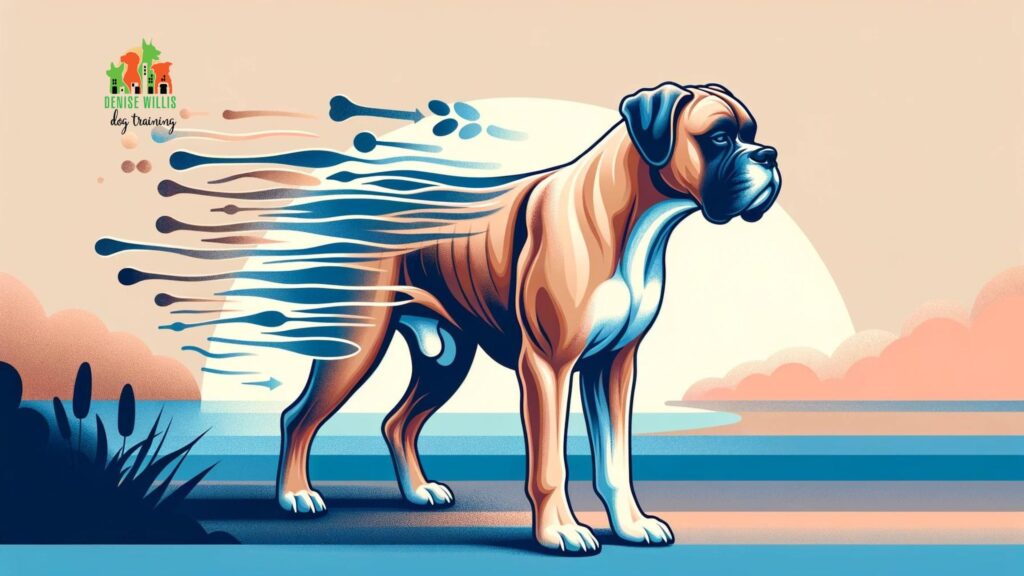
The Maturity Mystery: Coincidence or Cause?
Here’s a scenario I see all the time: a dog owner brings their pup in for neutering around 6 months to a year old, right around the time when many dogs are hitting social maturity. And lo and behold, shortly after the surgery, their once-friendly dog starts getting snippy with other canines.
It’s tempting to blame the neutering for this sudden shift in behavior, but the truth is, it might just be a coincidence. As dogs mature, they often become more selective about their doggy friends and less tolerant of rude or obnoxious behavior from their peers.
So, while it’s easy to point the finger at the surgery, it’s important to consider that your dog’s newfound grumpiness might just be a natural part of growing up.
Your Action Plan: Managing Post-Neutering Aggression
Okay, so your dog is showing signs of aggression after being neutered. What now? Don’t panic – there are plenty of steps you can take to help your furry friend navigate this transition and get back to their happy, well-adjusted self.
- Talk to your vet. This should always be your first step. Make sure there aren’t any medical issues or surgical complications at play that could be contributing to your dog’s aggression.
- Bring in the pros. A certified dog trainer or animal behaviorist can be a lifesaver in these situations. They can help you develop a customized plan to manage your dog’s aggression and teach them healthier coping strategies.
- Create a calm, stress-free environment. During the recovery period, your dog needs a peaceful sanctuary where they can rest and heal. Keep things low-key by minimizing exposure to stressors like loud noises, unfamiliar visitors, or high-energy playtime.
- Reward the good stuff. Positive reinforcement is your friend. Whenever your dog is calm and well-behaved, shower them with treats, praise, and gentle affection. This will help them associate good things with being relaxed and non-aggressive.
- Take charge of dog-dog interactions. If your dog is getting snappy with other canines, it’s up to you to manage those interactions carefully. Keep them on a leash in public, and steer clear of dog parks or off-leash areas until their behavior improves.
- Consider medication. In some cases, your vet may recommend anti-anxiety meds or other pharmacological interventions to help your dog cope with the emotional upheaval. Don’t be afraid to explore this option if needed.
The Road to Recovery: Patience, Love, and Consistency
I won’t sugarcoat it. Dealing with post-neutering aggression can be a tough road. It’s frustrating, emotionally draining, and sometimes downright heartbreaking to see your beloved dog struggling with these changes.
But here’s what I want you to remember: recovery is possible. It takes time, patience, and a whole lot of love, but you and your dog can get through this. You might have setbacks along the way, and that’s okay. Just keep putting one paw in front of the other.
Celebrate the little victories, lean on your support system, and don’t be afraid to ask for help when you need it. You’re not alone in this journey.
Your Dog’s Well-Being: The Bottom Line
At the end of the day, your dog’s health and happiness should be your top priority. If you’re considering neutering, have an honest conversation with your vet about the potential risks and benefits, including the possibility of behavioral changes.
And if your dog does develop aggression after the procedure, don’t hesitate to reach out for professional guidance. With the right support and a whole lot of love, you can help your furry friend thrive and enjoy a fulfilling life by your side.
But Wait, There’s More: A Treasure Trove of Dog Aggression Knowledge Awaits
Want to go down the rabbit hole of dog aggression? I’ve got a whole arsenal of articles that’ll make you say, “Wow, I had no idea.” Get ready to have your mind blown:
Dog Aggression in Older Dogs: Compassionate Approaches to Caring for Your Senior Canine
Dog Aggression After Surgery: Professional Insights into Post-Operative Behavioral Shifts
Select Dog Aggression Vs. Playfulness: A Comprehensive Guide for Responsible Owners
Dog Aggression in Specific Breeds: The Compelling Science Behind Canine Temperament
Dog Aggression Toward Children: Understanding the Root Causes and Effective Solutions
Dog Aggression Solutions: A Complete Guide to Stopping Aggressive Behavior in Dogs
Causes of Dog Aggression: A Revealing Exploration into the Heartfelt Struggles of Our Furry Friends
Signs of Aggression in Dogs: How to Identify and Respond to Them for a Harmonious Home
These articles cover everything from gray-muzzled aggression to post-op outbursts, breed-specific beef to kid-related chaos. It’s a freaking goldmine of knowledge that’ll help you understand what’s going on in your dog’s head and how to deal with it like a pro.
So, go ahead, and click till your finger cramps. Soak up all the wisdom and come out the other side ready to tackle your dog’s aggression issues head-on. Because let’s be real, a dog that’s not trying to take a chunk out of everything that moves is a dog that’s living its best life. And isn’t that what we all want for our furry little psychopaths?
Essential Products for Post-Neutering Care and Aggression Management
While professional guidance is crucial in addressing post-neutering aggression, certain products can support your efforts at home. These items can help create a more comfortable environment for your recovering pet and assist in managing aggressive behaviors. Here are five recommended products that many pet owners have found beneficial when dealing with post-neutering challenges:
- ThunderShirt Classic Dog Anxiety Jacket: This pressure wrap can help reduce anxiety and stress in dogs, potentially easing aggressive tendencies during the recovery period.
- ADAPTIL Calm Home Diffuser for Dogs: A pheromone diffuser that can create a calming environment, helping to reduce stress-related behaviors in recovering dogs.
- PetSafe SSSCAT Spray Pet Deterrent: A motion-activated deterrent spray that can help keep your dog away from sensitive areas during recovery, reducing potential aggression triggers.
- Zesty Paws Calming Bites for Dogs: These chewable supplements contain ingredients that may help promote relaxation and reduce stress-related behaviors in dogs.
- Snuggle Puppy Behavioral Aid Toy: This comforting plush toy with a heartbeat simulator can provide a sense of security for dogs, potentially reducing anxiety-related aggression.
While these products can be helpful tools in managing your dog’s post-neutering aggression and recovery, they should be used in conjunction with professional guidance and training. Every dog is unique, and what works for one may not work for another. Always consult with your veterinarian or a professional dog behaviorist before introducing new products or techniques into your dog’s routine. With patience, love, and the right combination of approaches, you can help your companion navigate the challenges of post-neutering recovery and behavior changes, working towards a happier, calmer future together.
Key Takeaways
- The neutering process itself can be a significant source of stress for dogs, which may lead to aggressive behavior.
- Pain and discomfort following surgery can cause dogs to become more defensive and prone to aggression.
- The sudden decrease in testosterone after neutering can contribute to fear-based aggression in some male dogs.
- Changes in social preferences and tolerance levels as dogs mature may coincide with neutering, but are not necessarily caused by the surgery.
- If your dog displays aggression after neutering, consult with your vet, work with a professional dog trainer, and create a calm, supportive environment to help them recover.
Frequently Asked Questions About Dog Aggression After Neutering
- Q: Will neutering definitely lead to aggression in my dog? A: No, not all dogs will become aggressive after neutering. While some may experience behavioral changes, many dogs do not develop aggression post-surgery.
- Q: How long does it take for a dog to recover from neutering, both physically and emotionally? A: Physical recovery typically takes 10-14 days, but emotional recovery can vary widely depending on the individual dog. Some may bounce back quickly, while others may take weeks or months to adjust.
- Q: Can post-neutering aggression be successfully treated? A: Yes, with the right combination of training, behavior modification, and support from a professional, most cases of post-neutering aggression can be successfully managed and improved.
- Q: Should I avoid neutering my dog altogether to prevent aggression? A: Not necessarily. Neutering offers many health and behavioral benefits, and the risk of aggression is relatively low. Talk to your vet about the best choice for your individual dog.
- Q: What should I do if my dog becomes aggressive towards me or my family after neutering? A: Seek professional help immediately. Aggression towards humans is a serious issue that requires intervention from a qualified veterinarian or animal behaviorist to keep everyone safe.
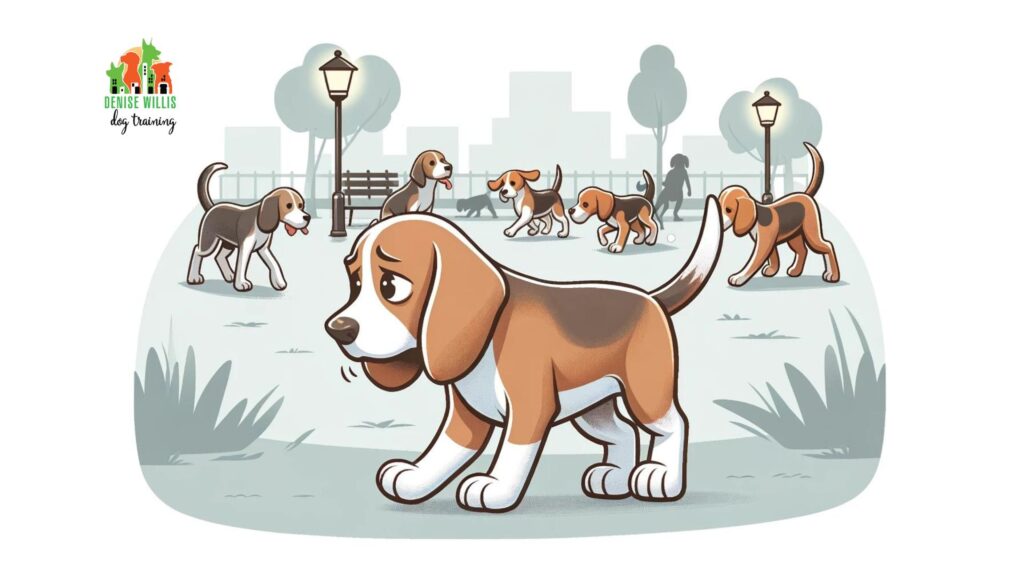
Final Thoughts
Listen, I know how devastating it is to see your once-gentle dog turn into a snarling, snapping mess after neutering. It’s enough to make you question everything you thought you knew about your furry best friend. But here’s the thing – post-neutering aggression doesn’t have to be a life sentence.
With the right knowledge, tools, and a whole lot of patience, you can help your dog navigate this hormonal minefield and come out wagging on the other side. And that’s where DW Dog Training comes in.
I’ve been in the dog training trenches for awhile, and I’ve seen my fair share of post-neutering aggression cases. It’s not pretty, but it is fixable. Our team of certified trainers is armed and ready to help you and your dog tackle this challenge head-on.
We’ll work with you to create a customized training plan that addresses your dog’s specific needs, whether that means in-home sessions, board and train programs, or a combination of both. We’ll give you the tools and knowledge you need to help your dog feel more confident, less reactive, and more like their old self again.
So, if you’re struggling with post-neutering aggression, don’t wave the white flag just yet. Reach out to us at DW Dog Training. We’ll be there every step of the way, helping you and your dog find your way back to each other.
Don’t let post-neutering aggression rob you of the joyful, loving relationship you deserve with your dog. Contact us today, and let’s get to work. Together, we’ll help your dog shake off those post-neutering blues and get back to being the happy-go-lucky pup you know and love.

